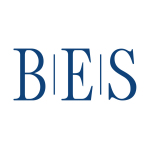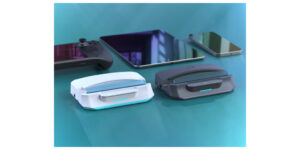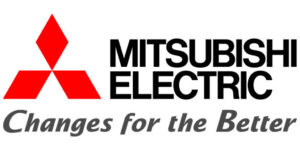KORNIT ALERT: Bragar Eagel & Squire, P.C. Announces that a Class Action Lawsuit Has Been Filed Against Kornit Digital Ltd. and Encourages Investors to Contact the Firm

NEW YORK–(BUSINESS WIRE)–#A–Bragar Eagel & Squire, P.C., a nationally recognized stockholder rights law firm, announces that a class action lawsuit has been filed against Kornit Digital Ltd. (“Kornit” or the “Company”) (NASDAQ: KRNT) in the United States District Court for the District of New Jersey on behalf of all persons and entities who purchased or otherwise acquired Kornit securities between February 17, 2021 and July 5, 2022, both dates inclusive (the “Class Period”). Investors have until April 17, 2023 to apply to the Court to be appointed as lead plaintiff in the lawsuit.
Click here to participate in the action.
This securities class action is brought on behalf of all persons or entities that purchased or otherwise acquired Kornit ordinary shares between February 17, 2021 and July 5, 2022, inclusive (the “Class Period”). The claims asserted herein are alleged against Kornit and certain of the Company’s current and former senior executives (collectively, “Defendants”), and arise under Sections 10(b) and 20(a) of the Securities Exchange Act of 1934 (the “Exchange Act”) and Rule 10b-5, promulgated thereunder.
Kornit designs and manufactures industrial digital printing technologies for the garment, apparel, and textile industries. The Company’s digital inkjet printers enable end-users to print both direct-to-garment (“DTG”) and direct-to-fabric (“DTF”). In DTG printing, designs and images are printed directly onto finished textiles such as clothing and apparel. In DTF printing, large rolls of fabric pass through wide inkjet printers that print images and designs directly onto swaths of fabric that are then cut and sewn into a product, and can be used in the fashion and home décor industries. Kornit also produces and sells textile inks and other consumables for use in its digital printers. Through customer support contracts, Kornit also provides customer assistance and equipment services for its printers, including technical support, maintenance, and repair.
During the Class Period, the Company also began offering software services to its customers, including a suite of end-to-end fulfillment and production solutions, called KornitX, through which the Company provides, among other things, automated production systems and workflow and inventory management.
The Company’s largest customer is multinational e-commerce company, Amazon.com, Inc. (“Amazon”). Among the largest of Kornit’s other customers during the Class Period were Delta Apparel, Inc. (“Delta Apparel”), a leading provider of activewear and lifestyle apparel products, and Fanatics, Inc. (“Fanatics”), a global digital sports platform and leading provider of licensed sports merchandise. Kornit generates more than 60% of its revenues from its ten largest customers. Accordingly, it was critically important for Kornit to maintain those major customers as well as continue to grow its customer base in order to achieve the Company’s ambitious goal of “becoming a $1 billion revenue company in 2026.”
Throughout the Class Period, Kornit repeatedly touted the purported competitive advantages provided by its technology and assured investors that it faced virtually no meaningful competition in the “direct-to-garment” printing market. The Company also represented that there was strong demand for its digital printing systems, consumable products, such as textile inks, as well as the services Kornit provided customers to maintain and manage its digital printers, and to manage customer workflow. Kornit further assured investors that the purportedly strong demand for the Company’s products and services would enable it to maintain its existing customer base and attract new customers that would limit the risks associated with a substantial portion of its revenues being concentrated among a small number of large customers.
These and similar statements made throughout the Class Period were false. In truth, Kornit and its senior executives knew, or at a minimum, recklessly disregarded, that the Company’s digital printing business was plagued by severe quality control problems and customer service deficiencies. Those problems and deficiencies caused Kornit to cede market share to competitors, which, in turn, led to a decrease in the Company’s revenue as customers went elsewhere for their digital printing needs. As a result of these misrepresentations, Kornit ordinary shares traded at artificially inflated prices throughout the Class Period.
Investors began to learn the truth on March 28, 2022, when Delta Apparel and Fanatics—two of Kornit’s major customers—announced that for months they had collaborated with one of Kornit’s principal competitors to develop a new digital printing technology that directly competed with products and services Kornit offered. Delta Apparel revealed that it had already installed this new technology in four of its existing digital print facilities and had plans to expand further. The utilization of this new, competing technology by Delta Apparel and Fanatics reflected the widespread dissatisfaction of Kornit’s major customers with the Company’s product quality and customer service, and meant that Kornit would likely lose revenue from two of its most important customers.
On May 11, 2022, despite reporting revenues that exceeded expectations, Kornit reported a net loss of $5.2 million for the first quarter of 2022, compared to a profit of $5.1 million in the prior year period. The Company also issued revenue guidance for the second quarter of 2022 that was significantly below analysts’ expectations. Kornit attributed its disappointing guidance to a slowdown in orders from the Company’s customers in the e-commerce segment. In addition, the Company admitted that, for at least the previous two quarters, Kornit knew that one of its largest customers, Delta Apparel, had acquired digital printing systems from a Kornit competitor. As a result of these disclosures, the price of Kornit ordinary shares declined by $18.78 per share, or 33.3%.
Then, on July 5, 2022, after the market closed, Kornit disclosed that it would report a sizeable shortfall in revenue for the second quarter of 2022. Specifically, Kornit expected revenue for the second quarter to be in the range of $56.4 million to $59.4 million, far short of the previous revenue guidance of between $85 million and $95 million that the Company provided less than two months earlier, in May 2022. Kornit attributed the substantial revenue miss to “a significantly slower pace of direct-to-garment (DTG) systems orders in the second quarter as compared to our prior expectations.” As a result of these disclosures, the price of Kornit ordinary shares declined by an additional $8.10 per share, or 25.7%.
As a result of Defendants’ wrongful acts and omissions, and the precipitous decline in the market value of the Company’s shares, Plaintiff and other Class members have suffered significant losses and damages.
If you purchased or otherwise acquired Kornit shares and suffered a loss, are a long-term stockholder, have information, would like to learn more about these claims, or have any questions concerning this announcement or your rights or interests with respect to these matters, please contact Brandon Walker or Melissa Fortunato by email at investigations@bespc.com, telephone at (212) 355-4648, or by filling out this contact form. There is no cost or obligation to you.
About Bragar Eagel & Squire, P.C.:
Bragar Eagel & Squire, P.C. is a nationally recognized law firm with offices in New York, California, and South Carolina. The firm represents individual and institutional investors in commercial, securities, derivative, and other complex litigation in state and federal courts across the country. For more information about the firm, please visit www.bespc.com. Attorney advertising. Prior results do not guarantee similar outcomes.
Contacts
Bragar Eagel & Squire, P.C.
Brandon Walker, Esq.
Melissa Fortunato, Esq.
(212) 355-4648
investigations@bespc.comwww.bespc.com








